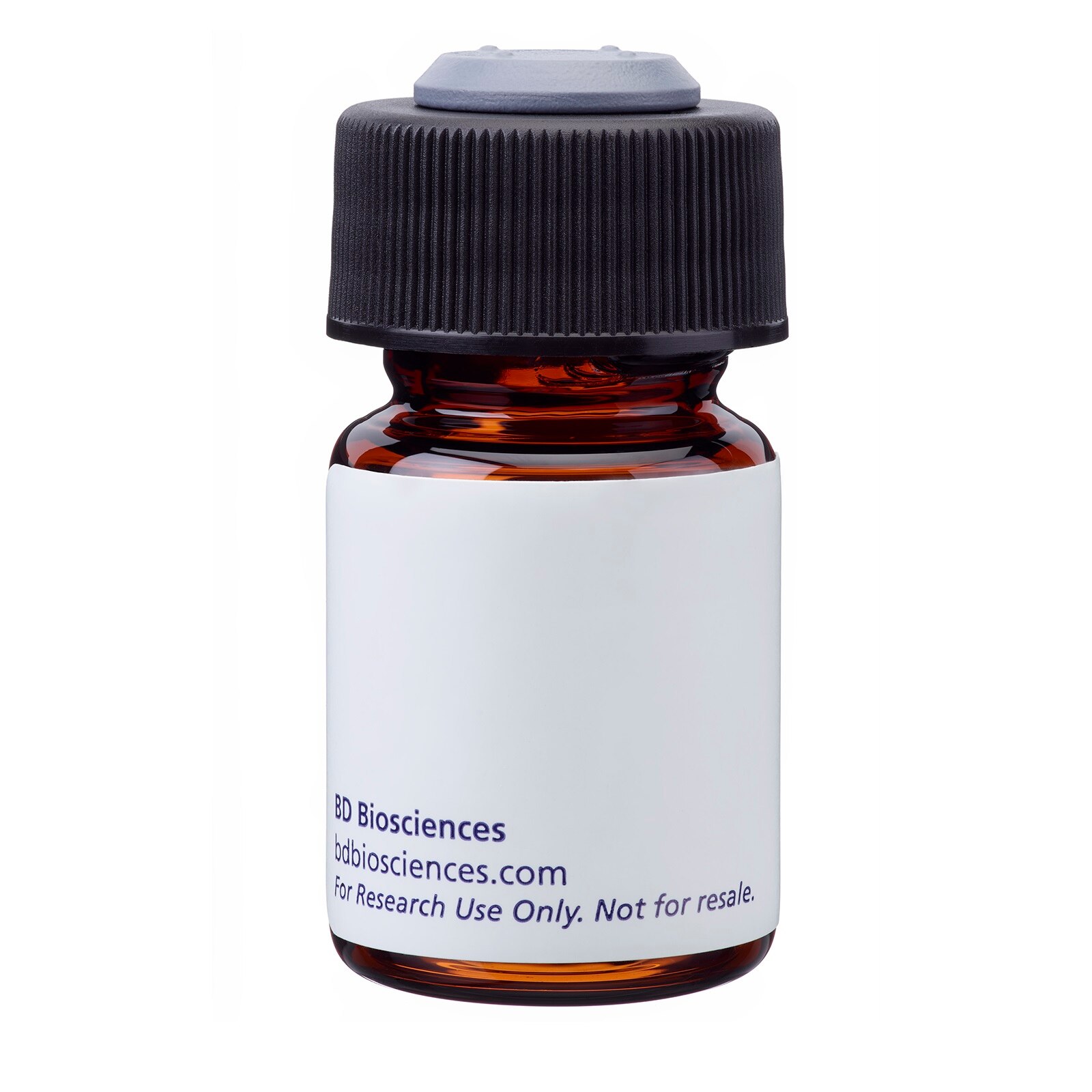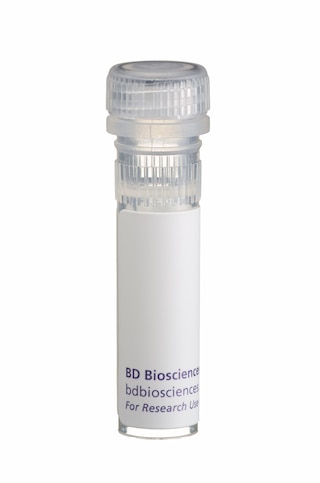Old Browser
This page has been recently translated and is available in French now.
Looks like you're visiting us from {countryName}.
Would you like to stay on the current country site or be switched to your country?




Flow cytometric analysis of CD106 on TNF-α-activated HUVEC cell line. HUVEC cells were stimulated with Recombinant Human TNF Protein (Cat. No. 554618; 20 ng/ml), then stained with either APC Mouse IgG1, κ Isotype Control (Cat. No. 555751; dashed line histogram) or APC Mouse Anti-Human CD106 (Cat. No. 551147; solid line histogram). Fluorescent histograms were derived from gated events based on the light scattering characteristics for viable HUVEC cells.


BD Pharmingen™ APC Mouse Anti-Human CD106

Regulatory Status Legend
Any use of products other than the permitted use without the express written authorization of Becton, Dickinson and Company is strictly prohibited.
Preparation And Storage
Product Notices
- This reagent has been pre-diluted for use at the recommended Volume per Test. We typically use 1 × 10^6 cells in a 100-µl experimental sample (a test).
- An isotype control should be used at the same concentration as the antibody of interest.
- Source of all serum proteins is from USDA inspected abattoirs located in the United States.
- Caution: Sodium azide yields highly toxic hydrazoic acid under acidic conditions. Dilute azide compounds in running water before discarding to avoid accumulation of potentially explosive deposits in plumbing.
- This APC-conjugated reagent can be used in any flow cytometer equipped with a dye, HeNe, or red diode laser.
- For fluorochrome spectra and suitable instrument settings, please refer to our Multicolor Flow Cytometry web page at www.bdbiosciences.com/colors.
- Please refer to www.bdbiosciences.com/us/s/resources for technical protocols.
Companion Products




The 51-10C9 monoclonal antibody specifically binds to CD106. CD106 is a 100-110 kDa type I transmembrane sialoglycoprotrein that is also known as Vascular cell adhesion molecule-1 (VCAM-1) and INCAM-110. CD106 is expressed at high levels on the surface of cytokine-stimulated endothelium, and at minimal levels on unstimulated endothelium. VCAM-1 serves as a ligand for the leukocyte integrins α4β1 (CD49d/CD29 complex; VLA-4) and α4β7 (LPAM-1). The 51-10C9 monoclonal antibody inhibits the in vitro binding of lymphocytes and monocytes to VCAM-1 on stimulated endothelium.

Development References (4)
-
Bevilacqua MP, Pober JS, Mendrick DL, Cotran RS, Gimbrone MA Jr. Identification of an inducible endothelial-leukocyte adhesion molecule. Proc Natl Acad Sci U S A. 1987; 84(24):9238-9242. (Biology). View Reference
-
Schlossman SF. Stuart F. Schlossman .. et al., ed. Leucocyte typing V : white cell differentiation antigens : proceedings of the fifth international workshop and conference held in Boston, USA, 3-7 November, 1993. Oxford: Oxford University Press; 1995.
-
Taichman DB, Cybulsky MI, Djaffar I, et al. Tumor cell surface alpha 4 beta 1 integrin mediates adhesion to vascular endothelium: demonstration of an interaction with the N-terminal domains of INCAM-110/VCAM-1. Cell Regul. 1991; 2(5):347-355. (Biology). View Reference
-
van Vugt MJ, van den Herik-Oudijk IE, van de Winkle JG. Binding of PE-CY5 conjugates to the human high-affinity receptor for IgG (CD64). Blood. 1996; 88(6):2358-2361. (Immunogen). View Reference
Please refer to Support Documents for Quality Certificates
Global - Refer to manufacturer's instructions for use and related User Manuals and Technical data sheets before using this products as described
Comparisons, where applicable, are made against older BD Technology, manual methods or are general performance claims. Comparisons are not made against non-BD technologies, unless otherwise noted.
For Research Use Only. Not for use in diagnostic or therapeutic procedures.
Report a Site Issue
This form is intended to help us improve our website experience. For other support, please visit our Contact Us page.